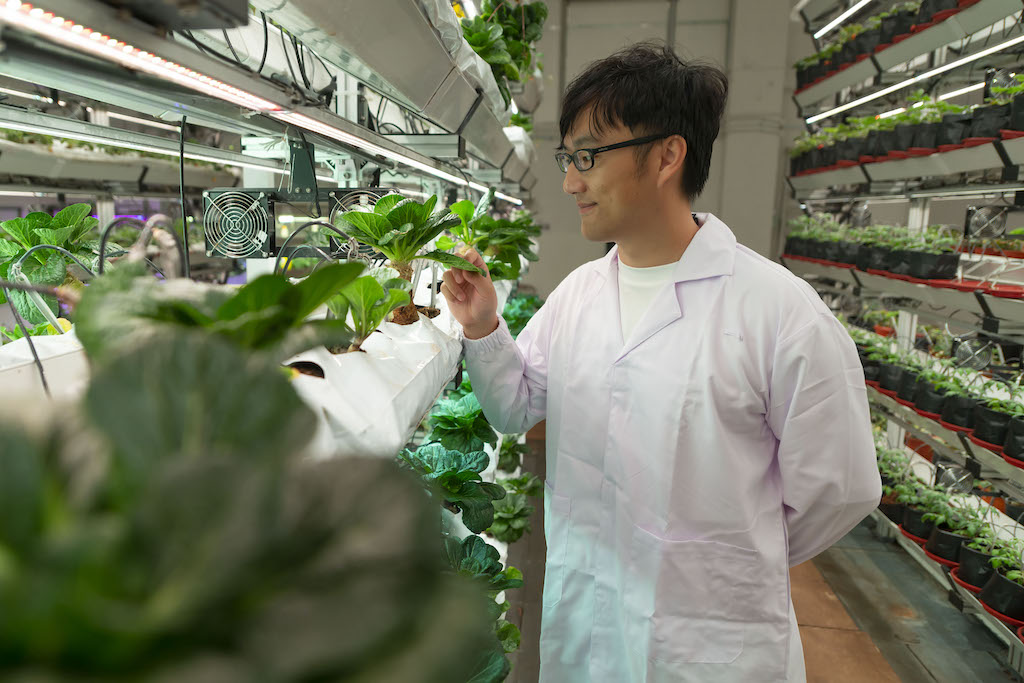Singrow’s ‘Climate Agnostic’ Crops Will Help Singapore Reach Food Sovereignty
3 Mins Read
The Singapore-based precision agriculture firm Singrow is expanding its vertical urban farms and launching a consumer-facing brand aimed at bringing sustainable crops to consumers in a bid toward Singapore’s 30 by 30 food resilience goals.
Blooom (that’s “bloom” with three “o”s), is the new concept brand Singrow hopes will help bring climate resilient crops to Asia and beyond.
Blooom produce
Blooom was conceptualized for discerning consumers looking for high-quality, superior-tasting produce grown in sustainable ways, Singrow said. Blooom will be introducing its e-commerce platform, launched after its recent acquisition of online grocer Fresh4All. Consumers will be able to purchase the sustainable Blooom crops to have shipped directly to their doors.
The new brand will also help Singrow’s partner farms access a “plug-and-play e-commerce platform” to reach consumers and create a closed-loop agriculture ecosystem.

The company says over the next 15 months it will work to expand across Asia—it’s already in China, Indonesia, and Singapore—as well as the Middle East. Singrow’s patented agriculture technology can bring fresh produce to consumers in urban areas and those regions still reliant on imports through its sustainable energy-efficient farming.
“Farmers today are facing a bigger challenge than ever before—unpredictable weather conditions such as drought or flash floods are affecting crop yields and in the long run, their livelihood,” Dr. Bao Shengjie, CEO and Chief Scientist at Singrow, said in a statement.
“At the same time, demand for food continues to increase as world population grows towards 10 billion by 2050. By introducing our proprietary seedlings and patented growth protocols, Singrow is enabling our partner farms to expand their crop variety and grow produce that are superior in both taste and quality, and to do so more efficiently and with a higher yield,” Shengjie said. “This not only has a positive impact on the farmers’ livelihoods, but it also benefits the larger community as consumers can now have access to great quality produce.”
Climate-resilient crops for a growing population
According to Singrow, global food production needs to increase 70 percent by 2050. Conversations about food security are at the forefront as climate change is reducing global yields by as much as 30 percent.
Singrow says its Singrow Smart Farm lets its farmer partners produce climate-agnostic crops at scale. Its smart farm tech, dubbed the Fast Cultivation Method, sees shorter harvesting cycles and better climate resilience for a range of crops including Singrow’s strawberries.

It says the berries can grow at warmer than usual temperatures, between 20 to 28 degrees Celsius as opposed to the usual 4 to 16 degrees Celsius. Partner farms would also increase yields by 20 times and reduce cultivation time by 30 percent. Its farms are other 40 percent more energy efficient than conventional vertical farms.
Singrow is also producing climate-agnostic rice, cherry tomato, blueberries, kale, choy sum and kailan, along with other produce.
To support Singapore’s shift to become more self-sustaining—producing 30 percent of its food by 2030—Singrow also partnered with RSP Architects, which designed Jewel Changi Airport, to develop urban farming sites.
“Collaborating with Singrow is a natural decision for RSP as sustainability is a key factor in our design principle, and we are always looking to incorporate green elements in our projects,” Mr. Beh Swee Chiew, Managing Director of RSP Singapore, said. “Through this partnership with Singrow, RSP is able to further our capabilities in sustainability and contribute towards Singapore’s food security efforts of ‘30 by 30’.”
Ms. Shi Lu, Managing Director of RSP China said the introduction and installation of Singrow’s vertical farms within buildings will provide occupants and visitors “a unique and holistic first-hand experience with nature within an urban setting,” that’s in line with China’s urban renewal, rural revitalization projects and carbon reduction objectives, “the farm-to-table practice has the potential to reach a broader market and bring about wide social effects.”
Photo by Monika Grabkowska on Unsplash




